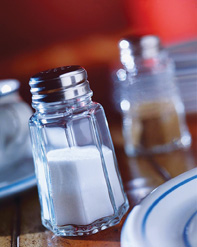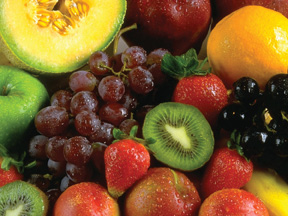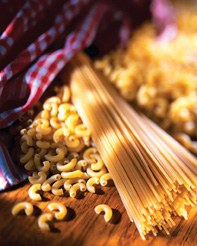
If you are interested in becoming a living kidney donor and are in good health, here are some steps you can take. More details
After your successful kidney transplant, compared to being on dialysis you will have a lot more freedom with your diet. However, it is very important to have a healthy wellbalanced diet to help protect your new kidney. When you go home, YOU become the most important member of your transplant team.
Depending on how well your new kidney is working you may need to continue to restrict certain foods for a short time. Your dietitian, or medical team, will let you know if this is necessary. It is important that you try to eat well during this period to help your wound heal. If you are finding it difficult to finish your meals inform the ward staff or the dietitian.
Once your kidney is working well you will no longer need to be on a special diet but it is important that you still watch what you eat and have a healthy balanced diet. This is particularly important as your transplant
medications can increase your blood pressure, cholesterol and blood sugar levels. These medications can also weaken your bones so you need to have a good intake of calcium and vitamin D.
A healthy diet is what the whole family should have. It means eating a wide variety of foods, in the correct amounts, to ensure good health and a healthy weight.

Almost all of us eat too much salt. About 80% of the salt we eat comes from processed foods, fast food, and canteen and restaurant food. About 10- 15% is added at home and only 5% occurs naturally in food.
To reduce your salt intake, you need to use less salt in cooking and at the table, eat more fresh foods and less processed and ready-made foods. Avoid using salt substitutes, for example: Lo-Salt and So Low.
| LIMIT THE AMOUNT OF FAT IN YOUR DIET | |
|---|---|
| Choose a low fat spread instead of butter, e.g., Flora Light, Golden Olive or Kerry Low-Low. |
Avoid deep frying foods - bake, boil, steam, microwave or grill instead. |
| Use low-fat instead of full fat milk. | Use a small amount of olive, rapeseed or sunflower oil if frying food. |
| Choose low fat or diet yoghurts. | Trim fat off meat and remove skin from chicken before cooking. |
| Choose low fat cheese, e.g: Cottage cheese, half-fat cheddar or Edam. Limit portion size to 2oz per week. |
Limit high fat snacks such as chips, crisps, chocolate, cakes and biscuits.
|

 A high fibre diet is good for health. Fibre can help lower your cholesterol levels and can help maintain a healthyweight. It is found in grains, cereals, pulses (beans, peas, lentils), fruit and vegetables. Try to choose:
A high fibre diet is good for health. Fibre can help lower your cholesterol levels and can help maintain a healthyweight. It is found in grains, cereals, pulses (beans, peas, lentils), fruit and vegetables. Try to choose:
Too much sugar can cause weight gain andincrease your triglyceride and blood sugar levels.
Adequate calcium and vitamin D are essential for healthy bones. Aim to have 3 to 4 portions of high calcium foods each day. One portion is:
Foods rich in vitamin D include: oily fish like salmon, herring, mackerel, sardines and trout. Eggs, and fortified foods such as milk, margarines and breakfast cereals.
 Limit Alcohol Intake
Limit Alcohol IntakeAlcohol is high in calories and sugar. Excessive alcohol can lead to weight gain and increased triglyceride levels.
Men 21 units per week
Women 14 units per week
One unit = 1 small glass (100ml) of wine
or 1 measure (25ml) of spirits
or ½ pint of beer/stout/cider
or 1 Alco pop (275ml)
Use sugar free mixers, e.g., slimline tonic or diet minerals.
It is important to follow some simple food safety guidelines after your kidney transplant; this is because
your treatment requires immunosuppressant tablets.
What you should do:
 Summary
Summary